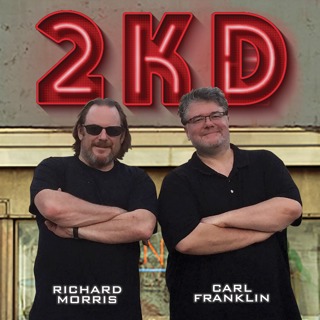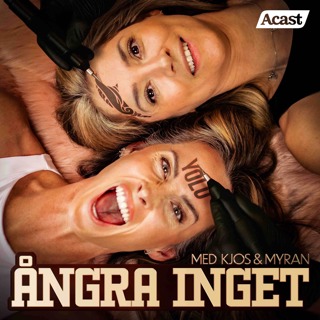
Losing 290 Pounds with Tom Seest
Carl and Richard interview Tom Seest. Tom is a software developer from Illinois. In 1999 he injured his back falling down stairs. He was always active before the injury, completely stopping all exercise after. He put on weight. A LOT of weight. He estimates he was over 500 pounds. He started an Atkins diet in 2009 and was down to 490 by the end of 2010. He tried various combinations of low-carb, low-fat and low-calorie diets. In April, 2011 he took his first bike ride and went 2 miles. By the end of the month he was up to 20 mile rides. Since then he's logged 21,700 miles, and has cycled all over the US and in many other countries. He managed to drop 200 pounds with a combination of diet and exercise. In January, 2015 he started a ketogenic diet and has taken off an additional 90 pounds! We talk to Tom about his experiences coping with his situation. Errata: Carl mentioned that the fat you eat has no effect on insulin. This is effectively true but technically false. Dietary fat does raise insulin ever so slightly, but the effect is negligible. However, we strive to be accurate! Support this podcast at — https://redcircle.com/2-keto-dudes/donations
15 Maj 20161h 2min

Ketones
Carl and Richard discuss Ketones. What are they? How are they produced? Are they safe? How can we effectively measure our ketone levels? Does it actually matter? All of these questions and more are answered on this episode of 2 Keto Dudes. Errata: We said we'd talk about consuming ketones but we never did. There is evidence that the mere presence of ketones in the blood stream is beneficial for controlling some kinds of cancer (listen to the cancer show from last week) however, taking ketones isn't a short cut to ketosis. It's like instead of going for a run you just cover yourself with sweat. The process of burning fat and creating ketones is where the magic happens. Carl mentioned that mitochondria are organelles in _every_ cell in the body. But there are some cells like red blood cells that lack a mitochondria - which is why they can only ferment glucose for energy and are unable to use fat for energy. Richard said that the Romans discovered that fasting cures epilepsy, but apparently a Greek doctor in the roman empire name Galen of Pergamon was just the first to write down that the Greeks had originally discovered the link noting thati n the book "Epidemics," Hippocrates describes the case of a man whose epilepsy was cured with drastic diet and fasting. Erasistratus, a Greek anatomist and royal physician under Seleucus I Nicator of Syria stated, "One inclining to epilepsy should be made to fast without mercy and be put on short rations." Support this podcast at — https://redcircle.com/2-keto-dudes/donations
8 Maj 201644min

Cancer
Carl and Richard talk to prostate cancer-survivor and friend, Mark Miller. In no way do we intend to claim that the ketogenic diet can cure cancer, but there has been interesting research that shows a correlation between eating a ketogenic diet and reduced tumor size. There's more to the story, and more interventions cited as well. We let Mark tell his story. A note to parents, we do talk about sexual function in this show. Support this podcast at — https://redcircle.com/2-keto-dudes/donations
1 Maj 201656min

Newbies
Are you new to the Ketogenic diet, or maybe just kicking the tires? Carl and Richard interview Carl's daughter, Emmy, who has been only doing keto for 21 days. This is a good show to listen to if you're completely new to this way of eating and would like a thorough review of what to expect, as well as some first-hand testimony. Support this podcast at — https://redcircle.com/2-keto-dudes/donations
24 Apr 201653min

Alcohol
Carl and Richard discuss alcohol, how it is metabolized, particularly by those eating a ketogenic diet. They discuss the carbohydrate content of typical drinks, and share a couple yummy keto-friendly cocktail recipes. Errata: Richard said he'd had 3 Bottles of Moët before the show - but it was actually 3 GLASSES of Moët. Also Richard said he didn't know of research substantiating Alcohol inhibiting gluconeogenesis and 5 minutes after we finished recording he found one from Hans Krebs (linked below). Update: May 11, 2016: Carl did an n=1 study on himself by following a 22/2 intermittent fasting pattern for 3 weeks. He ate only dinner, but had drinks with and after dinner. The result was a big plateau. No major weight loss. He then did a 2 day fast and started eating his one meal at lunch time (with no alcohol) saving the drinks for the evening. The results were positive. He started losing a pound a day. His hypothesis: When you drink alcohol your liver stops metabolizing food and focuses on the alcohol. Once all the calories are extracted from the alcohol the liver goes right back to metabolizing food, but now your caloric intake has increased and some of the calories from the food will not be used, and some of the fat will be stored in the fat cells. By giving the body time to process the food intake, you allow the liver to do it's job. More fat gets burned. By the time you introduce alcohol a bigger chunk of your lunch has already been metabolized. Support this podcast at — https://redcircle.com/2-keto-dudes/donations
17 Apr 201651min

Cholesterol
Carl Franklin and Richard Morris research the elusive cholesterol. Is it bad? Good? Why so much bickering? The results may surprise you. Also, Carl got his blood work results after 2 months on the ketogenic diet. There's great news. As far as potentially bad news, that's what was discussed. You guessed it. Cholesterol. Errata: Richard referred to the units for fasting insulin being pico IU, but the correct unit is “microunits per milliliter” (mcU/ml or mIU/ml). Richard also mentioned that the Norwegian Hunt 2 study followed 5,000 individuals for 10 years, but it was actually 50,000 individuals for 10 years. Note: Converting Cholesterol divide mg/dl by 38.67 Note: Converting Triglycerides divide mg/dl by 88.57 When first published on April 11, 2016, this show was linked to episode 8. If you find yourself here because of that, just re-download it. We fixed the problem. Sorry for the inconvenience. Support this podcast at — https://redcircle.com/2-keto-dudes/donations
11 Apr 20161h

Type 2 Diabetes
Carl and Richard discuss Type 2 Diabetes. How does one get it? Is it reversible? How does it differ from Type 1 Diabetes? How does the medical establishment tell you to manage it? What does the standard recommended diet for Type 2 diabetics look like? These are all questions Carl and Richard tackle on this week's 2 Keto Dudes. Errata: Richard said that a study showed that people with an HbA1c under 8.5 might still be able to see a reversal with an intervention that lowered serum triglycerides - the study was "Very-Low-Calorie Diet and 6 Months of Weight Stability in Type 2 Diabetes: Pathophysiologic Changes in Responders and Nonresponders" and the non-responder group (no reversal of pancreatic burnout) had an HbA1c of 8.4% ± 0.3, the responders (reversal of pancreatic burnout) had an HbA1c of 7.1% ± 0.3 - so if glucose control turns out to be the discriminator the cut off may be between 7.4% and 8.1%. Support this podcast at — https://redcircle.com/2-keto-dudes/donations
4 Apr 201651min

Sweeteners
This week Richard Morris and Carl Franklin talk about sweeteners other than table sugar, the good and the bad. Errata: Carl mistakenly said that he had an insulin response to the Truvia brand sweetener (Erythritol + Stevia), but in fact it was the Fructevia brand, which combines fructose with Stevia. Support this podcast at — https://redcircle.com/2-keto-dudes/donations
27 Mars 201644min





















